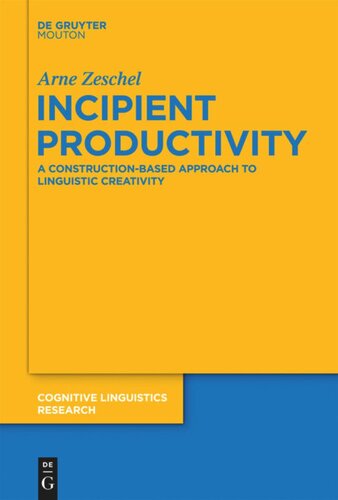

Most ebook files are in PDF format, so you can easily read them using various software such as Foxit Reader or directly on the Google Chrome browser.
Some ebook files are released by publishers in other formats such as .awz, .mobi, .epub, .fb2, etc. You may need to install specific software to read these formats on mobile/PC, such as Calibre.
Please read the tutorial at this link: https://ebookbell.com/faq
We offer FREE conversion to the popular formats you request; however, this may take some time. Therefore, right after payment, please email us, and we will try to provide the service as quickly as possible.
For some exceptional file formats or broken links (if any), please refrain from opening any disputes. Instead, email us first, and we will try to assist within a maximum of 6 hours.
EbookBell Team

5.0
28 reviewsHow do speakers vary established patterns of language use and adapt them to novel contexts of application? This study presents a usage-based approach to linguistic creativity: combining detailed qualitative with large-scale quantitative analyses of corpus data, it traces the emergence of partial productivity in clusters of conventional collocations.
Focusing on English and German intensification constructions, it proceeds in three steps: having first inventoried the lexical means (of a given semantic type) that are recruited for signalling intensity in both languages, collostructional analysis is then used to identify entrenched intensity collocations involving these formatives in three different syntactic constructions. Third, multi-rater manual classification methods as well as distribution-based automatic classification methods are employed to uncover semantic generalisations over the attested types on different levels of abstraction.
Collocational expansion is shown to proceed through local analogies within sets of semantically similar stored instances of a construction. Synthesising insights from research on language acquisition, variation and change, it is thus argued that creative extensions of linguistic conventions are intrinsically bound up with aspects of memory and repetition.